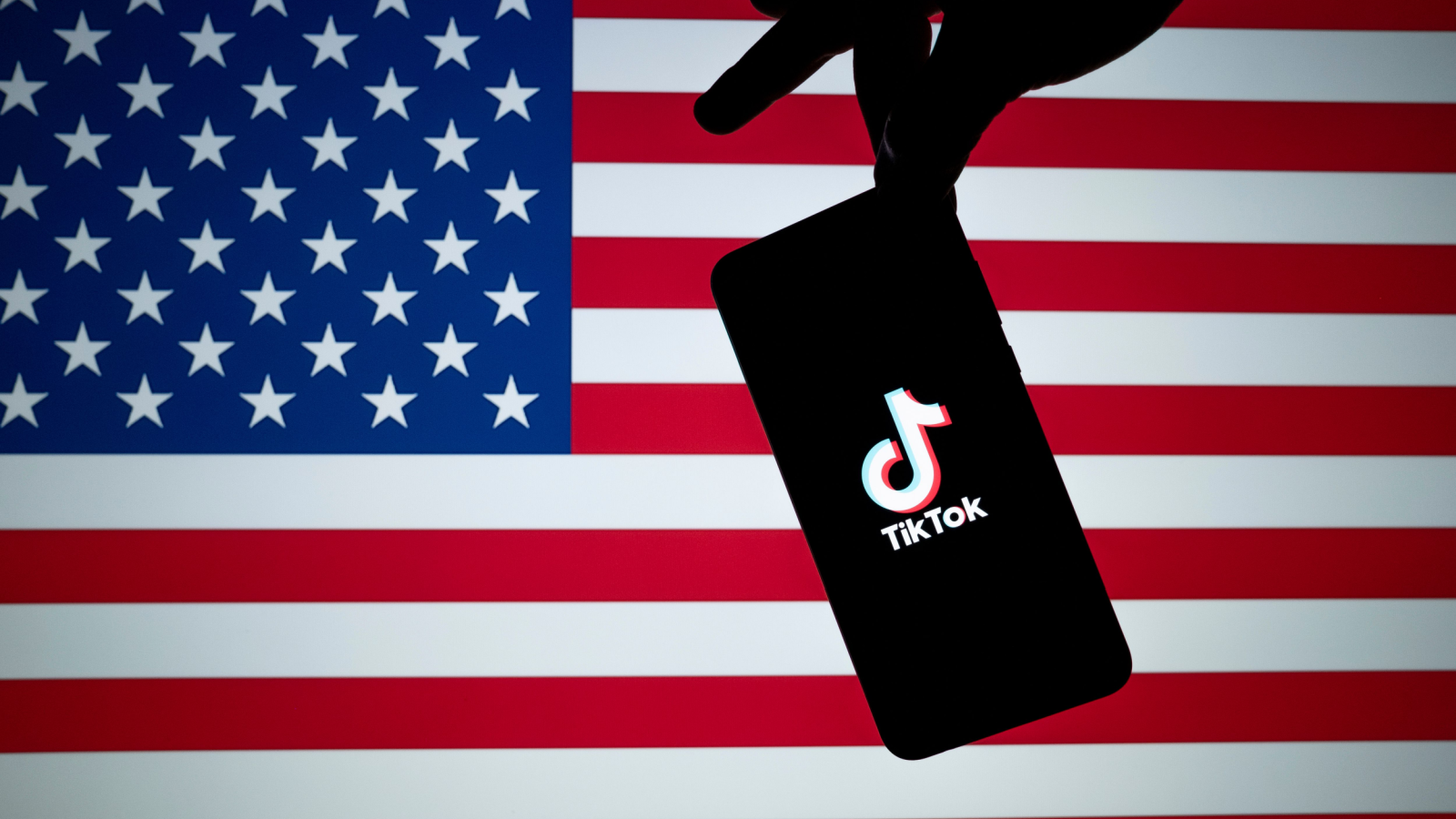The proposal to ban TikTok may be moving forward. In November 2022, the FBI informed the House Homeland Security Committee of national security concerns regarding the popular content-sharing platform. Since then, politicians have been looking into the data security dangers it may pose. Senator Mark Warner recently echoed the law enforcement agency’s accusation, and he isn’t the only one who feels this way. Reuters reports that a bipartisan coalition of twelve U.S. senators is backing legislation extending the power to ban TikTok to Commerce Secretary Gina Raimondo. This new bill will be unveiled today, and the country is waiting anxiously to see how it will be received. For investors, this means evaluating the best stocks to buy to benefit from a TikTok ban. However, these proposed restrictions may apply to other platforms as well. Per CNBC:
“Dubbed the Deterring America’s Technological Adversaries, or DATA, Act, the House bill mandates that the president impose broad sanctions on companies based in or controlled by China that engage in the transfer of the ‘sensitive personal data’ of Americans to entities or individuals based in, or controlled by, China.”
That isn’t to say that banning TikTok will be easy. As Axios reports, complex political elements could make it difficult to impose a ban on such a popular app. While that’s true of almost any bill, it shouldn’t be overlooked that influential U.S. lawmakers from both sides of the aisle are mobilized against it. No matter how we look at it, the road ahead for TikTok seems difficult. But for other social media platforms, it provides an opportunity to grow.
Let’s take a look at the best stocks to buy ahead of the looming TikTok ban.
Best Stocks to Buy: Snap (SNAP)

Source: BigTunaOnline / Shutterstock
Before TikTok burst onto the social media landscape, young people flocked to Snapchat, owned by Snap (NYSE:SNAP). The platform grew from a photo-sharing tool to a media brand that featured original content and a lucrative advertising arm. Like TikTok, Snapchat rose to prominence on the backs of a young user base, amusing teens and tweens with its fun filters and content modification tools. With that in mind, it’s no surprise that SNAP stock surged yesterday as momentum for the TikTok ban escalated.
If they can’t keep using TikTok, users across the country will likely start spending more time on Snapchat. That means a significant influx in traffic for the platform and a significant boost for SNAP stock. In 2022, InvestorPlace senior investment analyst Luke Lango speculated that regulatory scrutiny of TikTok would mean favorable tailwinds for Snapchat. We are seeing precisely that play out as TikTok faces a potential nationwide ban. SNAP has lost momentum since yesterday, but its response to the bill supports Lango’s bullish thesis. If it passes, the stock will soar again.
Grom Social Enterprises (GROM)

Source: Postmodern Studio / Shutterstock
It hasn’t been a good year for this micro-cap penny stock. Grom Social Enterprises (NASDAQ:GROM) has been on some investors’ radars due to its high short interest but has failed to generate any significant momentum. That may be about to change, however. Grom Social provides a social media and entertainment platform specifically designed for users under thirteen. Like Snapchat, it will likely see a surge in new user activity if the bill banning TikTok passes. The platform features plenty of gaming and entertainment options for young users and is designed to provide a safe experience. As TikTok has been accused of not protecting the privacy of child users, Grom will likely have plenty of appeal for parents.
GROM stock hasn’t responded well to the news of the TikTok today, but it garnered some momentum yesterday. At less than $1 per share, it represents a lucrative opportunity for investors who don’t mind a little risk. Those who do will likely be drawn to SNAP stock, which has been much less volatile this year. But for those who don’t mind a bumpier road in the short term, this little-known penny stock could be a winner in the post-TikTok market.
Stocks to Buy: NextDoor (KIND)

Source: Tada Images / Shutterstock.com
TikTok is best known for appealing to young people, but we shouldn’t forget about the older users who also enjoy it. Recent statistics indicate that users between 10 and 19 comprise only 32.5% of the platform’s base. That leaves 67.5% of users who are old enough to be concerned with adult things. This means a clear opportunity for NextDoor (NYSE:KIND), a platform specifically designed to provide hyperlocal social networking for neighborhoods. In late 2021, InvestorPlace contributor Stavros Georgiadis described it as the “next big social media platform.”
Granted, KIND stock hasn’t performed too well since then, falling almost 5% year-to-date. However, a market without TikTok may be just what it needs to finally turn around and generate actual growth. Contributor Faizan Farooque ranked it among up-and-coming tech stocks to buy, stating:
“One of the most important impacts of social media is on our mental health. It is time-consuming, and people often turn to it while stuck inside their homes during Covid-19.
Nextdoor addresses these issues. It encourages outside activity by interacting more with the community around you. Therefore, considering its explosive growth, KIND stock is an interesting way to play the social media space.”
Since TikTok has also been accused of negatively impacting users’ mental health, NextDoor may provide an excellent alternative. It’s been a year since Farooque’s bullish case, but market conditions may shift strongly in the company’s favor.
On Penny Stocks and Low-Volume Stocks: With only the rarest exceptions, InvestorPlace does not publish commentary about companies that have a market cap of less than $100 million or trade less than 100,000 shares each day. That’s because these “penny stocks” are frequently the playground for scam artists and market manipulators. If we ever do publish commentary on a low-volume stock that may be affected by our commentary, we demand that InvestorPlace.com’s writers disclose this fact and warn readers of the risks.
Read More: Penny Stocks — How to Profit Without Getting Scammed
On the date of publication, Samuel O’Brient did not hold (either directly or indirectly) any positions in the securities mentioned in this article. The opinions expressed in this article are those of the writer, subject to the InvestorPlace.com Publishing Guidelines.

